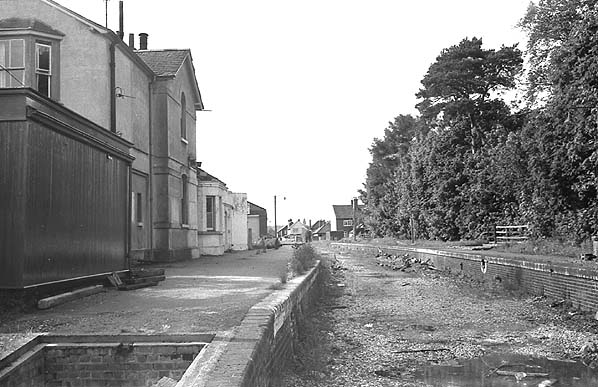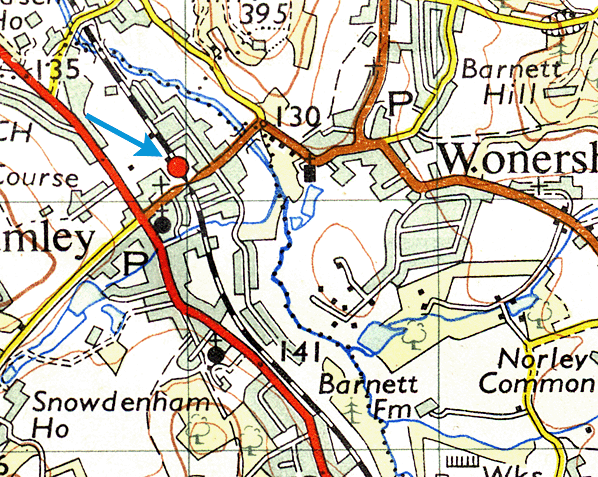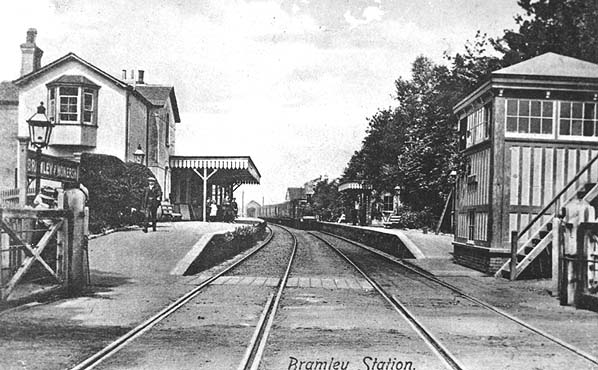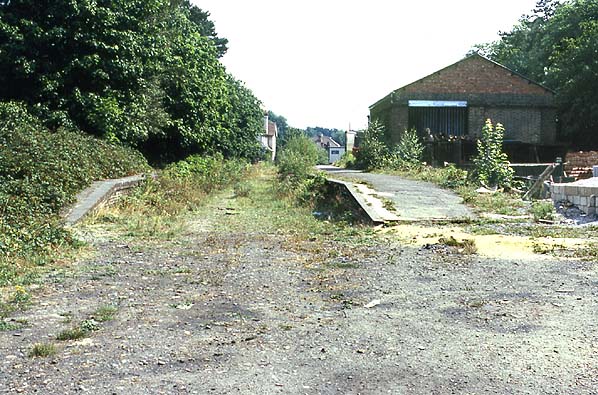|
Notes: In the mid 1800's there were two proposals for a railway
linking Guildford & Horsham. One from the Horsham & Guildford
Direct Railway and the other from the Wey
and Arun Junction Canal Company who wanted to drain 16 miles
of their canal and build a railway along the canal bed. The Wey
and Arun scheme was quickly forgotten but a bill to incorporate
the HGDR was put before Parliament, and on 16th February 1860.
Initially the London Brighton & South Coast Railway opposed
the Bill but following an agreement that the LBSCR should run
the line they withdrew their opposition.
The Horsham and Guildford Direct Railway Act was passed on 6th
August 1860, with a clause that required the London & South
Western Railway to allow the company to use one and a half of
its line, still unfinished at that time, between Peasmarsh and
Guildford.
Construction of the Horsham & Guildford Direct railway started
early in 1862 with five stations planned at Bramley, Cranley,
Little Vachery (later changed to Baynards), Rudgwick & Slinfold.
The branch opened on 2nd October 1865 and was single track for
its entire length with a passing loop at Baynards Station.
In 1867, Cranley's name was changed to Cranleigh at the request
of the Post Office because badly written letters were sometimes
mistaken for Crawley and vice versa. During 1876 passing loops were added at Bramley station and
another at Cranleigh in 1880. In 1888 Bramley was renamed Bramley
and Wonersh as the station equidistant from the two village centres.
In 1902 Christ's Hospital Station was opened at Stammerham Junction
at the southern end of the line, this was built to serve the new
Christ's Hospital School. The station had seven platforms (three
on the Guildford line and four on the main line) to cater for
the expected large number of pupils expected daily. These numbers
never materialised as the school was opened to borders only and
it was only busy at the end of a term.
There was a proposal to electrify the line between Peasmarsh
and Cranleigh in the 1930's to allow a through service to Waterloo
but the proposal was dropped with the coming of WW2.
During the 1950's passenger numbers were poor and the branch
was considered for closure. The railway strike of 1955 proved
disastrous for the line with freight traffic being forced onto
the roads. The traffic didn't return after the strike and the
line began losing money. The goods service was withdrawn from
the five stations in 1962 and with only 5000 passengers a week
using the line and 5000 tons of freight passing over it, branch
was listed for closure under the Beeching report 'The reshaping
of British Railways' and closed on 14th June 1965.
With the growth of the population of Cranleigh, Surrey County
Council commissioned a study to look into rail improvements in
the county in 1964, one of the proposals was to reinstate the
rail service between Guildford and Cranleigh and in 1996 British
Rail looked into the technical feasibility of reinstating the
line but the proposal was not economically viable and was dropped.
Much of the line is now part of the Downs Link long distance footpath
and bridleway.
On 16th December 1942 a train packed with Christmas shoppers
was departing from Bramley when it was attacked by a German aircraft.
The plane fired its machine gun at the train and dropped a bomb
that exploded on the embankment narrowly missing the train. The
train was badly damaged and seven people, including the driver
and guard, were killed.
Books:
Branch Lines to Horsham by Vic Mitchell & Keith Smith
Middleton Press 1982 ISBN 0906520 02 9
Other web sites:
Railways
of Southern England
The
Cranleigh Railway Line
Sussex
Industrial Archaeology
To see the other
stations on the Horsham & Guildford Direct Railway click on
the station name: Cranleigh,
Baynards, Rudgwick,
Slinfold & Christ's
Hospital
|





 Home Page
Home Page 




 Home Page
Home Page